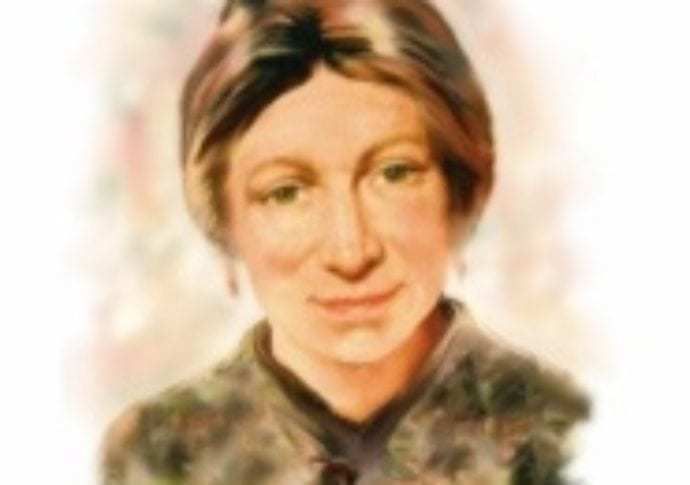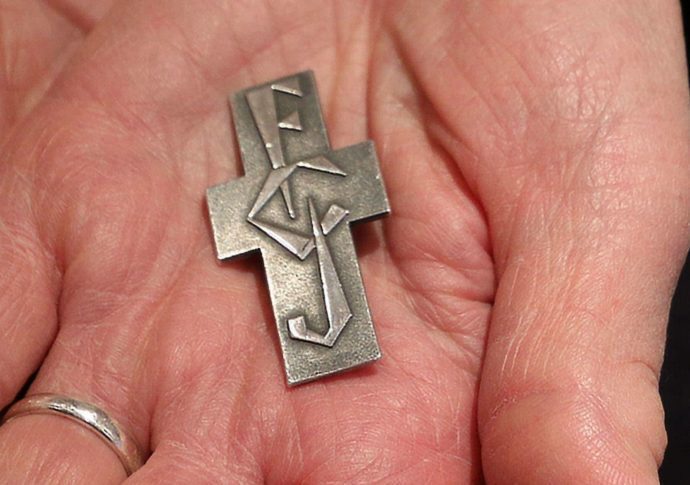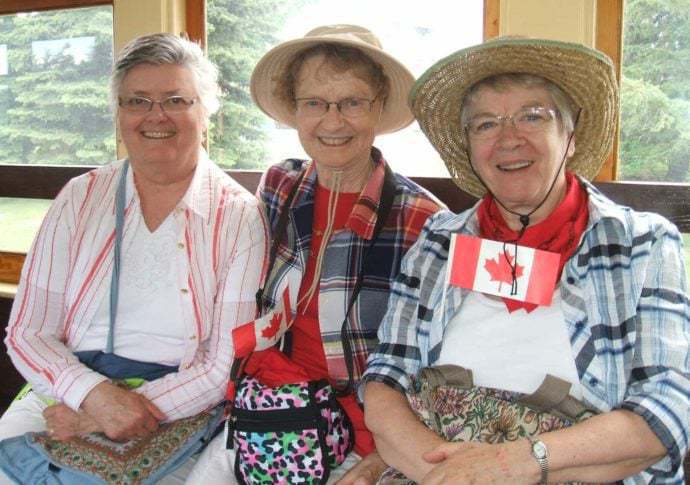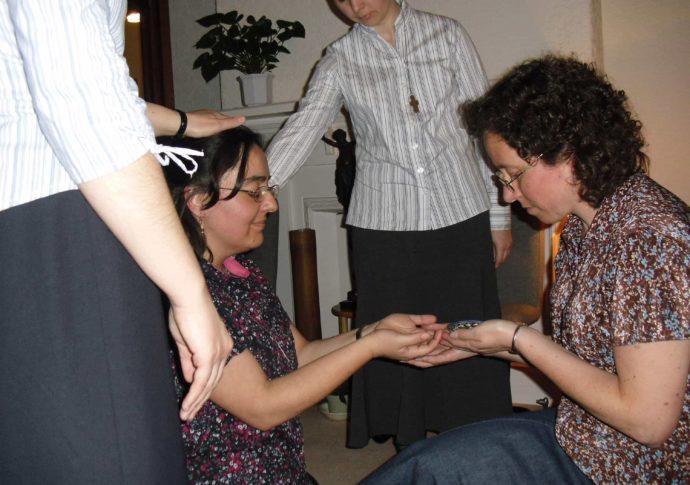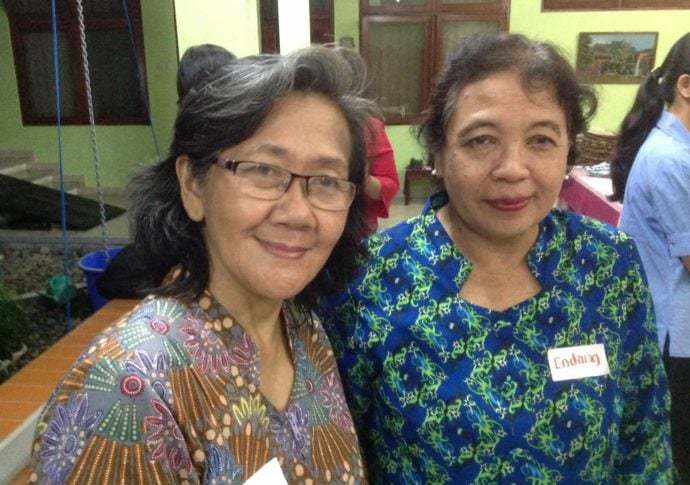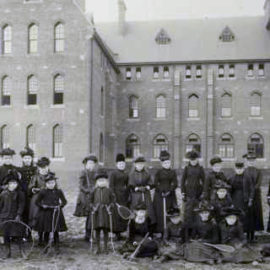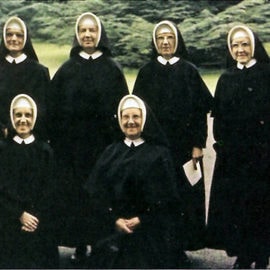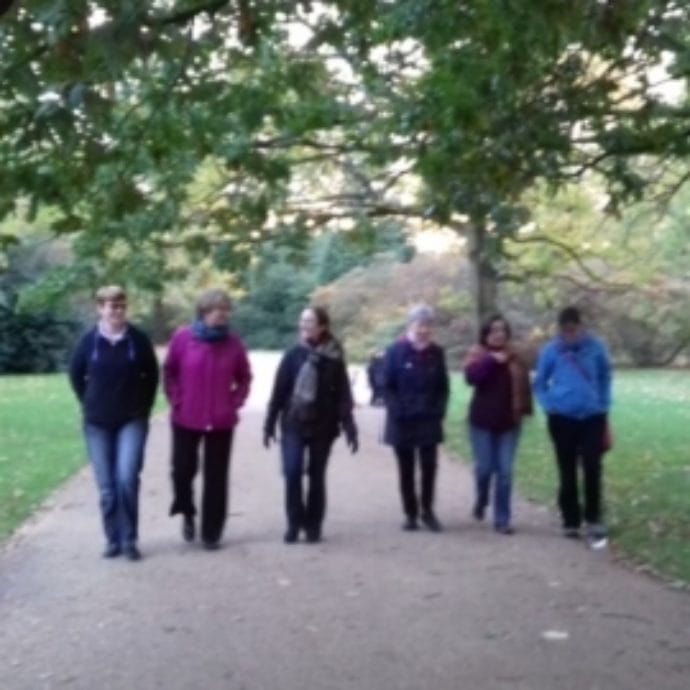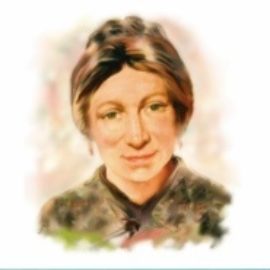Philomena Higgins, an Irishwoman, the first non-French Superior General, was elected in Brussels on 2 August 1914, the day of the invasion of France by Germany – the invasion of Belgium took place on the following day. Consequently her early years as Superior General were deeply shadowed by the Great War. Her long generalate of thirty-three years included World War II also, so it is not surprising that the healthy expansion which had taken place under her predecessors did not continue to the same extent under Philomena’s leadership of the Society.
Between 1914 and 1918, Philomena’s overriding concern was for the safety of the communities and schools in Belgium and France, the main theatre of war. However, her anxiety for the English houses increased with news of the first offensive against Britain in December 1914 when a sea attack by German warships on Hartlepool in the North East of England made her keenly aware of unforeseen dangers. The FCJ community and school in West Hartlepool did not suffer directly in the raid, but the community were greatly affected by what had happened, and all over Britain morale sank at this undeniable proof of the strength of the enemy.
After the Great War, readjusting to a time of peace, Philomena reviewed the position of all the communities and their apostolates, visiting FCJ houses in different parts of the world. This review led to a number of closures.
After the war, the political troubles in France which had forced the Society to seek exile in other parts of Europe had faded into the background. As a result, two of the houses set up in Belgium to provide a refuge for some of the French sisters and their pupils were no longer needed: Namur closed in 1919 and Graty in 1920, while the communities from these places returned to Paris, Nantes and Sainte Anne d’Auray, where the houses re-opened. After an absence of 16 years, a small community also returned to St Philomena’s in Amiens, which, during the war, had become a shelter for as many as 40 refugees, who filled the house from cellar to attic. The house in Avenue Montjoie, Brussels, remained as the only, though sizeable, FCJ presence in Belgium. The sisters who had taken refuge in Switzerland, had struggled during the war but had survived safely. They did not return to France, and their boarding-school, La Chassotte, in Fribourg continued to operate. The little school in Cliftonville, Kent, England, closed in 1920, and the sisters moved a few miles along the south coast to join the Stella Maris community on the North Foreland, Broadstairs. Hawthorn in Australia closed the following year, 1921, and St Anne’s, Edmonton, in 1922. Two years later, 1924, saw the closure of Healsville in Australia, Gilbertville in the USA and Bagatelle in Jersey.

1920 was the centenary of the foundation of the Society, and Philomena initiated preparations for a major celebration, which took place in Upton Hall, England on 2 August 1920. Delegates were sent from the different European communities to take part in the solemn High Mass and the festivities that followed. The guest of honour was Cardinal Francis Bourne, Archbishop of Westminster, London, and many other priests and friends of the Society were also present. A second, simpler, commemoration of the centenary took place in Amiens in November of the same year.
A major revision of the Code of Canon Law (1917) – in which 200 canons or norms related to religious life – meant that Philomena had to prepare a new version of the FCJ Constitutions. She asked a Canadian sister, Catherine Windle, who had been a legal secretary before she entered the Society, to help her.

Philomena and Catherine produced a description of the way of life of the Sisters Faithful Companions of Jesus which consisted of two parts: The Nature of the Society and The Government of the Society, written in strict accordance with the Vatican norms common to all congregations. The new FCJ Constitutions were definitively approved by Pope Benedict XVI in 1921, and were published in 1922, with a preface by Cardinal Francis Gasquet, the then Cardinal Protector of the Society. The revised text bore little resemblance to the Jesuit Constitutions which Marie Madeleine had desired so passionately for the Society. Philomena was aware that the unique spirit of the Society could not be reflected in the uniform norms given by Rome to all congregations. She gave great attention to the accompanying book, entitled The Directory, thus ensuring that the spirit of the Society and its traditional characteristics would be preserved.
In 1939, when Philomena at the age of 82 was, as Superior General, still carrying overall responsibility for the Society, she had to face another major crisis, World War II. She stayed in England for the duration of the war, relying on her councillors to do what they could to support the European houses in those difficult times.
Philomena’s legacy included the more inward-looking, more ‘monastic’ lifestyle delineated in the Constitutions of 1922 which it had been her responsibility to write in accordance with the norms given by the Vatican. Philomena died, aged 90, at Stella Maris Convent in Broadstairs, Kent on 7 October 1947.

New foundations under Philomena
1918: Bognor Regis, England
1921: Wednesbury, England
1922: Providence, Rhode Island, USA
1924: Poles, Ware, England
1935: Colaiste (in which the Irish language was the principal medium of education), Laurel Hill, Limerick
1945: Ribeaucourt, France





